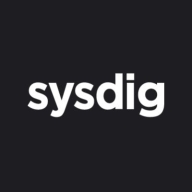


Microsoft Defender for Cloud and Sysdig Falco are competing solutions in the cloud cybersecurity market. Microsoft Defender for Cloud has the upper hand in integration with Azure services, while Sysdig Falco excels in open-source features and Kubernetes visibility.
Features: Microsoft Defender for Cloud offers threat detection, compliance management, and deep Azure integration. Sysdig Falco features runtime security monitoring, anomaly detection for containers, and real-time security alerts. Microsoft focuses on comprehensive cloud service integration, contrasting with Falco's emphasis on container security.
Ease of Deployment and Customer Service: Microsoft Defender for Cloud integrates seamlessly with Azure, simplifying deployment for Microsoft-centric setups. Its customer service benefits from Microsoft's robust support network. Sysdig Falco offers flexible deployment across various cloud environments, supported by an active community. Microsoft Defender's Azure focus favors enterprises operating heavily in Azure, whereas Sysdig offers adaptability across different platforms.
Pricing and ROI: Microsoft Defender for Cloud is priced higher due to its comprehensive suite, offering substantial ROI for Azure-integrated businesses. Sysdig Falco's open-source model results in lower initial costs, with significant ROI due to its targeted security features and minimal licensing fees. While Microsoft may be more costly, Sysdig Falco's container-focused security provides a strong value proposition.


SentinelOne Singularity Cloud Security protects cloud workloads, offering advanced threat detection and automated response. It integrates seamlessly with cloud environments and secures containerized applications and virtual machines against vulnerabilities.
SentinelOne Singularity Cloud Security is renowned for its efficiency in mitigating threats in real-time. The platform integrates effortlessly with existing cloud environments, ensuring robust cloud security management with minimal manual intervention. Securing containerized applications and virtual machines, it excels in threat intelligence and endpoint protection. However, improvements are needed in performance during high workload periods, and more integrations with third-party tools and better documentation would be beneficial. Users often find the installation process complex, support response times slow, and the dashboard's navigation unintuitive.
What are the key features of SentinelOne Singularity Cloud Security?In specific industries, SentinelOne Singularity Cloud Security is implemented to safeguard critical data and infrastructure. Organizations in finance, healthcare, and technology depend on its real-time threat detection and automated response to protect sensitive information. Its ability to secure containerized applications and virtual machines is particularly valuable in dynamic environments where rapid scaling is necessary.
Microsoft Defender for Cloud is a comprehensive security solution that provides advanced threat protection for cloud workloads. It offers real-time visibility into the security posture of cloud environments, enabling organizations to quickly identify and respond to potential threats. With its advanced machine learning capabilities, Microsoft Defender for Cloud can detect and block sophisticated attacks, including zero-day exploits and fileless malware.
The solution also provides automated remediation capabilities, allowing security teams to quickly and easily respond to security incidents. With Microsoft Defender for Cloud, organizations can ensure the security and compliance of their cloud workloads, while reducing the burden on their security teams.
Sysdig Falco is a powerful open-source behavioral activity monitoring tool designed for containerized environments. Its primary use case is to enhance security and threat detection in cloud-native infrastructures.
The most valuable functionality of Sysdig Falco lies in its ability to detect and alert on abnormal behavior within containers and Kubernetes environments. It leverages a set of rules to monitor system calls, network activity, file access, and other low-level events, enabling it to identify suspicious activities and potential security breaches.We monitor all Container Security reviews to prevent fraudulent reviews and keep review quality high. We do not post reviews by company employees or direct competitors. We validate each review for authenticity via cross-reference with LinkedIn, and personal follow-up with the reviewer when necessary.